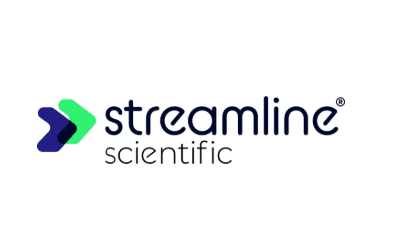Streamline Scientific Launches Enhanced PCR Reporting Service to Combat Antibiotic Resistance in UTI Treatment
TL;DR
Streamline Scientific's enhanced PCR reporting service helps labs differentiate themselves by providing clinically valuable insights that support better treatment decisions without new equipment.
Streamline Scientific integrates CLSI M100 guidelines into PCR reports, connecting detected pathogens with resistance markers and evidence-based treatment recommendations for UTIs.
This service reduces inappropriate antibiotic use by 30%, improving patient recovery and combating antimicrobial resistance for a healthier future.
Streamline Scientific transforms complex PCR data into intuitive reports that flag ineffective drug classes and suggest better alternatives for UTI treatment.
Found this article helpful?
Share it with your network and spread the knowledge!

Streamline Scientific has launched an enhanced PCR reporting service for urinary tract infection testing designed to reduce inappropriate antibiotic use and strengthen stewardship initiatives. The service addresses a significant healthcare challenge, as UTIs account for more than 10 million doctor visits annually in the U.S., with antibiotics often prescribed before lab results are available and approximately 30% of these prescriptions proving to be incorrect choices.
The enhanced reporting service integrates CLSI M100 guidelines directly into PCR reports, providing providers with clearer, more actionable information on detected pathogens and their resistance markers. CLSI M100 represents the leading industry guidance for microbiology culture and sensitivity testing for UTIs, developed by a subcommittee dedicated to enabling laboratories to assist clinicians in selecting appropriate antimicrobial therapy for patient care.
Shawn Hood, president of Streamline Scientific, emphasized the importance of this development, stating that antibiotic stewardship remains one of the most pressing challenges in healthcare today, with UTIs representing a major contributor to inappropriate prescribing. The enhanced PCR reporting service bridges the gap between laboratory results and treatment decisions by providing providers with clearer insights based on established clinical guidelines.
The reporting format offers physicians a more intuitive interface that connects laboratory findings directly to clinical guidance. Rather than requiring providers to interpret raw PCR results independently, the reports associate each pathogen with relevant resistance markers and CLSI-based treatment recommendations. For instance, when Escherichia coli is detected with sulfonamide or trimethoprim resistance, the report identifies those drug classes as ineffective and suggests better-supported alternative treatments.
This approach enables faster, more confident prescribing decisions that support both patient care objectives and antibiotic stewardship goals. The service was designed with both laboratory and physician needs in mind, allowing laboratories to deliver more meaningful results to their clients while providing physicians with reports that are easier to interpret and directly aligned with treatment guidelines.
The service provides distinct advantages for both reference laboratories and medical practices. Laboratories can differentiate themselves in a competitive market by adding clinical value without requiring new equipment investments, while simultaneously providing their provider clients with reports that directly support treatment decision-making. Medical practices benefit from simplified interpretation of complex PCR data into actionable insights, facilitating alignment with stewardship objectives and strengthening relationships with patients and referring providers.
Implementation requires minimal disruption as the service builds upon existing PCR workflows, enabling rapid deployment without necessitating new hardware or platform investments. Additional information about the service is available at http://www.streamlinesci.com/reporting.
Curated from citybiz

